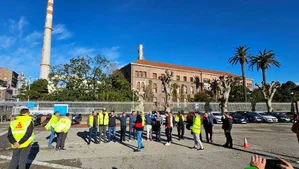Minimum Wage Hike in Spain: A Mixed Bag for Workers

In a significant move aimed at improving the livelihoods of workers, the Spanish government has implemented a notable increase in the minimum wage. However, this change comes with a complex set of implications that may not entirely benefit the lowest-income earners as anticipated.
The Increase and Its Impact
As of January 1, 2025, the Minimum Interprofessional Wage (SMI) in Spain has been raised by 4.4%, bringing the monthly minimum wage to 1,184 euros over 14 monthly payments. This translates to an annual gross income of 16,576 euros. The increase, championed by Minister of Labour Yolanda Díaz, is part of a broader effort to boost the base salary, which has risen by approximately 61% since 2018[2].
Tax Implications
While the increase seems promising, it comes with a significant caveat. For the first time in Spanish history, minimum wage earners will be subject to income tax. This means that out of the 700 euros annual increase, a substantial portion will be withheld by the state. According to estimates, up to 43% of the planned increase could be allocated to tax payments, leaving workers with a net gain of only about 25 euros per month[1][2].
The tax impact varies based on individual circumstances such as marital status and the number of dependent children. For instance, a single worker with no children may see up to 300 euros withheld annually, almost half of the total wage increase. In contrast, workers with a partner and a child under three years old may not face any withholding[2].
Government and Union Reactions
Minister of Labour Yolanda Díaz has expressed her disagreement with the tax implications, emphasizing the negative impact on low-income workers. Despite her efforts to advocate for a reduction in income tax, the final decision rests with the Ministry of Finance, led by María Jesús Montero[1].
Regional Impact
The minimum wage increase affects approximately 2.5 million workers across Spain, with a significant concentration in regions like Andalucía and Extremadura. Andalucía has the highest number of minimum wage earners, with around 476,100 workers, while Extremadura has the highest percentage of employees receiving the SMI at 20.8%[2].
Broader Economic Context
The decision to tax minimum wage earners is part of a larger strategy to manage public finances. The continuous increase in the minimum wage since 2018 has led to more taxpayers being affected, prompting the Ministry of Finance to adjust tax thresholds accordingly. This move is crucial in the context of reactivating fiscal regulations and ensuring the stability of public finances[1].
For expats living in Spain, this change highlights the complexities of the Spanish tax system and the ongoing efforts to balance economic growth with social welfare. As the government navigates these challenges, it remains to be seen how these measures will impact the broader economic landscape and the lives of workers across the country.
Related Stories

Over 2,600 Aspirants Participate in Initial Public Employment Exams for 2023-2024 in Suffolk and Monroe Counties
Over 2,600 candidates vie for public sector roles in Suffolk and Monroe counties, marking a keen interest in civil service careers for 2023-2024.

Cantabria Leads in Creation of Indefinite Employment Positions Following Labor Reform
Cantabria leads Spain in creating stable jobs post-labor reform, setting a positive precedent for national employment stability and growth.

New Mediation Called in Solvay Logistics Strike in Spain
In a bid to resolve the ongoing strike at Solvay's Spanish logistics division, Orecla announces a new mediation session, aiming to reconcile worker demands with company operations.

Significant Changes in Labor Laws and Housing Regulations in Spain: What Expats Need to Know
Spain introduces major labor and housing law reforms, impacting expats with changes to temporary contracts, eviction procedures, and climate-related labor measures.

Spain Set to Implement Shorter Work Week Starting 2025
Spain to reduce its work week to 37.5 hours by 2025, aiming to improve work-life balance for 12 million employees, following an agreement led by Labour Minister Yolanda Díaz.